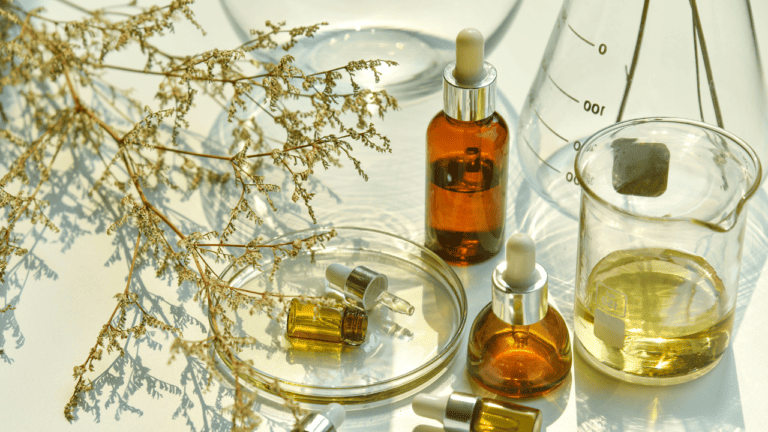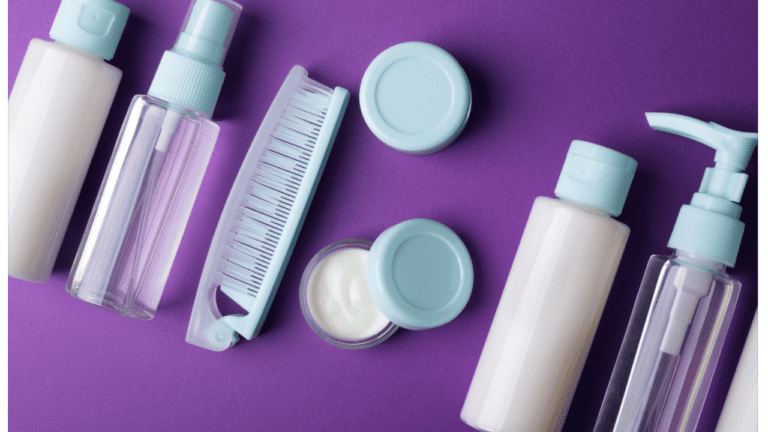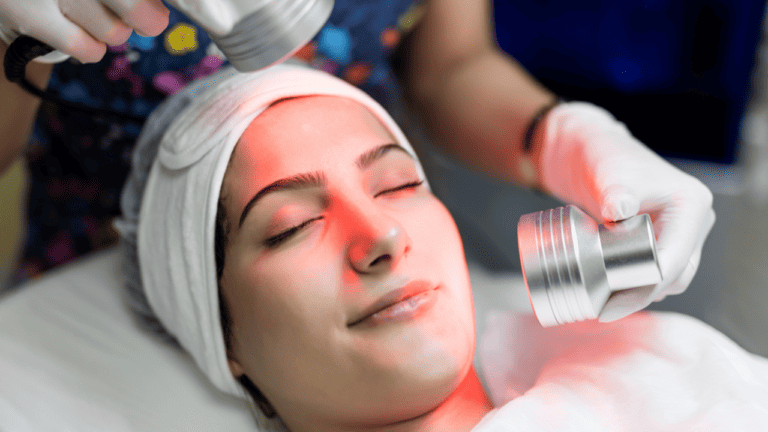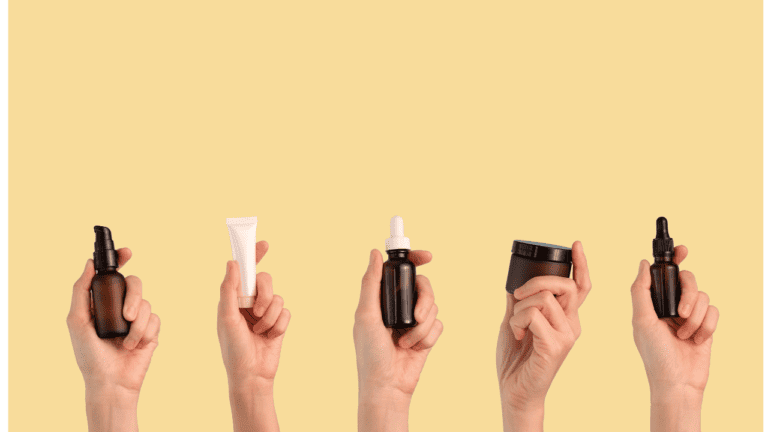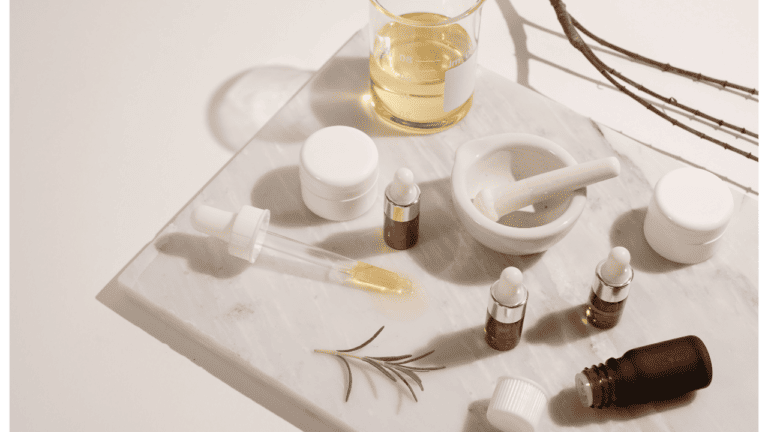Vitamin C is a popular ingredient in skincare products due to its numerous benefits, such as brightening the skin, promoting collagen synthesis, and fighting free radicals. However, some individuals may experience a sticky sensation after applying vitamin C products to their skin. This may be disconcerting, but understanding the possible causes can help alleviate concerns and improve one’s skincare routine.

One possible reason for the sticky feeling after applying vitamin C is that it has not fully absorbed into the skin. This may occur if too much product is used or if it is not given enough time to properly sink in before applying other products, such as moisturizers. Dr. Hadley King, a board-certified dermatologist, suggests waiting five minutes after applying a serum before moving on to moisturizer to help diminish the sticky sensation. Another factor to consider is the correct order of application for skincare products since applying them in the wrong order may inhibit absorption and contribute to the sticky feeling.
Moreover, the sticky sensation after using vitamin C may also be attributed to the formulation of the skincare product, particularly the concentration of L-ascorbic acid. Higher concentrations can potentially cause irritation, especially in individuals with sensitive skin. In such cases, it is advised to opt for a lower concentration of vitamin C or consult with a dermatologist for an appropriate recommendation tailored to the person’s specific skin type and needs.
Understanding Vitamin C in Skincare

Roles and Benefits of Vitamin C
Vitamin C is a potent antioxidant that plays a vital role in skincare. It is known for its ability to neutralize free radicals, which protects the skin from damage caused by external factors such as ultraviolet (UV) radiation and pollution. One of its primary benefits is promoting collagen production, a protein responsible for maintaining the skin’s elasticity and firmness. This helps in reducing the appearance of fine lines and wrinkles.
Another remarkable advantage of vitamin C is its brightening effect on the skin. It can effectively improve uneven skin tone and reduce pigmentation, resulting in a more radiant complexion. Additionally, vitamin C possesses anti-inflammatory properties, making it helpful in soothing irritated or sensitive skin.
Different Forms of Vitamin C
Vitamin C is available in various forms for skincare. The most common and potent form is L-ascorbic acid. This form is known for its quick and noticeable benefits but can also be irritating for sensitive skin. Choosing a product with a lower concentration of L-ascorbic acid may help mitigate this issue, as suggested by dermatologist Dr. Shereene Idriss.
Another form of vitamin C is ascorbic acid, which tends to be less irritating and more stable than L-ascorbic acid. Other derivatives like magnesium ascorbyl phosphate and sodium ascorbyl phosphate are also available, offering similar benefits with the added advantage of being less irritating and more shelf-stable.
It’s essential to consider these different forms of vitamin C when choosing skincare products, as they vary in potency, stability, and compatibility with different skin types. By understanding the roles and benefits of vitamin C in skincare, along with its various forms, it becomes easier to select the most effective product for your unique skin concerns.
Sticky Sensation Post-Application

Factors Contributing to Tackiness
One common reason for a sticky sensation after applying a vitamin C product is the formula itself. The texture of a vitamin C serum or moisturizer can be affected by several factors, including the concentration of the active ingredient and the pH of the product. A higher concentration of vitamin C might result in a more tacky or sticky feel on the skin. Additionally, a product with a low pH can cause the skin to feel tight or uncomfortable, which may amplify the sticky sensation.
Another factor contributing to the tackiness is the amount of product applied to the skin. Using too much of one product can result in a sticky residue, as the skin can only absorb a certain amount1. To avoid over-application, it is recommended to apply a small dot of the product on each cheek, nose, chin, and forehead before massaging it in1.
Role of Other Ingredients
Besides the main ingredient, the other ingredients present in a vitamin C product can also influence its texture and feel on the skin. Some products may contain humectants like glycerin or hyaluronic acid, which can make the skin feel slightly tacky, especially when used in higher concentrations2. In certain cases, the presence of silicones can contribute to a smooth, yet sticky sensation on the skin3.
Here is a list of some common ingredients that might impact the stickiness of a product:
- Humectants: Glycerin, hyaluronic acid
- Silicones: Dimethicone, cyclomethicone
- Oils: Jojoba oil, squalane
It’s important to be aware of the ingredients in a vitamin C product and consider their possible impact on the overall texture and feel. If you find that your skin consistently feels sticky after applying a vitamin C serum or moisturizer, consider looking for an alternative product that has a lighter texture or contains different ingredients.
Footnotes
Correct Usage of Vitamin C Serums

In order to ensure the best results and minimize the sticky feeling, it’s important to use vitamin C serums correctly. This section covers proper application techniques and how to combine it with other skincare products.
Application Order and Technique
The general rule for applying skincare products is to apply them in order of their consistency from lightest to heaviest. The typical steps are: cleanse, tone (if applicable), apply serum, eye cream, moisturizer, and finally sunscreen. As vitamin C serums are typically light in texture, they should be applied after cleansing and before moisturizing. Here’s a brief outline:
- Cleanse your face to remove dirt and oil.
- Tone (optional) to balance your skin’s pH level.
- Apply a small amount of vitamin C serum to your face, using a dotting technique: a dot on each cheek, your nose, chin, and forehead. Gently massage the serum into your skin. Dr. Joshua Zeichner recommends this technique to avoid using too much product.
- Follow with an eye cream if desired.
- Apply a moisturizer to lock in hydration.
- Finish with a sunscreen to protect your skin from UV damage.
Combining Vitamin C With Other Skincare Products
When using vitamin C serums, it’s important to be mindful of the other skincare products you’re using. Some ingredients may help boost the effectiveness of vitamin C, while others may not mix well.
- Sunscreen: Vitamin C serums can provide additional protection against UV radiation when used in conjunction with sunscreen. Always apply sunscreen during daytime use of vitamin C serums.
- Cleanser: Choose a gentle cleanser to avoid over-stripping your skin or disrupting its pH balance.
- Toner: If you’re using a toner, select one that complements your vitamin C serum. Avoid toners with a high concentration of alcohol, which may cause irritation.
- Makeup: Allow the vitamin C serum to fully absorb before applying makeup to prevent any interference with proper absorption.
- Retinol: When combining vitamin C with retinol, ensure you are using a low-concentration retinol product or alternating retinol and vitamin C serums in your routine, as higher concentrations of retinol may cause irritation.
- Hyaluronic acid: This ingredient can be a great addition to your vitamin C routine, as it aids in hydration and helps support the skin’s natural moisture barrier.
Remember to always patch test new products or combinations of products, as individual skin reactions may vary.
Identifying Your Skin Type and Concerns

To choose the right vitamin C product for your skin and avoid a sticky sensation after application, it is essential to determine your skin type and address any specific concerns. Knowing your skin type can help you understand how it may react to certain ingredients, including vitamin C.
Catering to Sensitive or Reactive Skin
If you have sensitive or reactive skin, you may experience irritation, redness, or even an allergic reaction to certain skincare products. It is important to choose a vitamin C formulation that is gentle and suitable for your skin type. For sensitive skin, consider using products with a lower concentration of vitamin C, and avoid combining it with other potent ingredients like retinol, which could exacerbate sensitivity.
Dry and oily skin types should also take care when choosing a vitamin C product, as different formulations can have varying effects on the skin. For instance, dry skin may benefit from a vitamin C serum containing hydrating ingredients, while oily skin may fare better with a lightweight, water-based formula.
Addressing Specific Skin Conditions
If you have specific skin conditions like rosacea or eczema, it is crucial to select vitamin C products that won’t aggravate your concerns. Consulting a dermatologist is highly recommended, as they can provide insights on the best formulations and concentrations for your skin’s needs. You can also consult the Skin Type guide to learn more about identifying your skin type and choosing appropriate skincare products.
To avoid a sticky sensation, try applying a small amount of the vitamin C product to your face, following the rule “less is more.” Research suggests that over-applying skincare products can cause discomfort and stickiness. If you continue to experience stickiness, it is always advisable to consult with a dermatologist for further guidance.
Enhancing Stability and Efficacy
Importance of Proper Storage
Vitamin C is known to be an unstable ingredient that can lose its efficacy when exposed to light and air. It is essential to store Vitamin C serums, like the popular Skinceuticals C E Ferulic, in a cool, dark place to maintain their stability and effectiveness. You can follow these storage tips to ensure your Vitamin C product retains its potency:
- Keep the product away from direct sunlight: Exposure to light can rapidly degrade Vitamin C and reduce its antioxidant properties.
- Store in a cool, dry place: High temperatures can break down the active ingredient, compromising its benefits.
- Tightly close the container after each use: Minimizing exposure to air is vital for maintaining the stability and efficacy of Vitamin C products.
Product Packaging Considerations
The packaging plays a crucial role in preserving the integrity of your Vitamin C serum. Key factors to look for in packaging include:
- Airless bottle: To minimize exposure to air and reduce oxidation, opt for products that come in an airless bottle. This design prevents air from entering the container, extending the shelf life and potency of the serum.
- Glass dropper: Some Vitamin C products, like the Skinceuticals C E Ferulic, come with a glass dropper applicator. While this allows for controlled dispensing of the product, it also permits air contact. To counteract this issue, make sure to promptly close the bottle after use, limiting the serum’s exposure to air.
By considering product storage and packaging, you can help maintain the stability and efficacy of your Vitamin C serum, ensuring optimal skin benefits and avoiding the unpleasant sensation of stickiness.
Professional Insights on Vitamin C
Recommendations from Dermatologists
Board-certified dermatologist Dr. Joshua Zeichner advises that one reason your skin may feel sticky after applying vitamin C serum could be due to applying too much of the product ^1^. To avoid applying more than needed, he recommends applying a dot of product on each cheek, your nose, chin, and forehead and then massaging it in.
For those with sensitive skin, dermatologist Dr. Shereene Idriss suggests using a lower concentration of L-ascorbic acid to lessen irritation ^2^. She advises that sensitive skin types should consider this when selecting a vitamin C serum.
Additionally, dermatologist Dr. Whitney Bowe emphasizes the importance of gradually introducing vitamin C into your skincare routine to minimize potential irritation, especially for sensitive skin ^3^.
Clinical Evidence and Studies
The effectiveness of vitamin C serums can be attributed to their antioxidant properties, which help to protect the skin against free radicals and environmental damage ^4^. According to medical professionals, three main factors may contribute to vitamin C irritation:
- A weak skin barrier
- Skin not being able to handle extreme pH levels
- High L-ascorbic acid concentration ^4^
Dermatologists recommend that those with sensitive skin pay attention to these factors when selecting a vitamin C serum. It is important to find a balance between efficacy and the risk of irritation.
By following the recommendations of dermatologists and remaining mindful of the potential for irritation, individuals can make informed decisions about incorporating vitamin C serums into their skincare routines.
Potential Skin Reactions and Remedies
Dealing With Post-Application Stickiness
It’s common for some people to experience a sticky feeling on their skin after applying vitamin C. This sticky feeling can be caused by using too much product or applying too many skincare products in general source. To avoid this issue, make sure to apply a moderate amount of product, focusing on the key areas of your face: cheeks, nose, chin, and forehead. Moreover, consider adjusting the number of products in your skincare routine if needed.
Here are a few tips to deal with post-application stickiness:
- Pat your skin gently: Instead of rubbing the product vigorously, gently pat your skin after applying the serum. This allows for better absorption.
- Check the ingredients list: Some vitamin C serums include hyaluronic acid or glycerin that might contribute to the sticky feeling. Opt for a serum with a lighter formula.
Managing Irritation and Redness
Although vitamin C is generally safe, skin sensitivity, irritation, and redness may occur for some individuals. A weak skin barrier, extreme pH levels, or an inflammatory reaction could lead to these side effects source.
Here is a list of remedies to manage skin reactions:
- Perform a patch test: Before applying the vitamin C serum all over your face, test a small amount on the inside of your arm or behind your ear to gauge your skin’s reaction.
- Start with a lower concentration: Vitamin C comes in different concentrations. Try using a product with a lower concentration, usually around 5%, and gradually increase it if your skin tolerates it.
- Adjust the frequency: If you notice irritation or redness, reduce the frequency of application to every other day or once a week and gradually build up the frequency over time.
If the symptoms persist, it’s recommended to consult a dermatologist. Be mindful of potential inflammatory reactions, swelling, pigment changes, or dark spots that may result from vitamin C application, and reach out to a professional if necessary.
Complementary Skincare Practices
The Role of Sun Protection
Sun protection plays a crucial role in maintaining healthy skin while using vitamin C. Since vitamin C helps to brighten the complexion and even out skin tone, exposure to sunlight can counteract these benefits by causing sun damage. Therefore, it is essential to incorporate sunscreen into your skincare routine, especially when using vitamin C products. Look for a broad-spectrum sunscreen with an SPF of at least 30, as it will safeguard your skin against both UVA and UVB rays. Apply the sunscreen after your vitamin C serum in the morning, and reapply throughout the day as needed to ensure continuous protection.
Pairing With Antioxidants for Enhanced Benefits
Vitamin C is a potent antioxidant on its own, but its benefits can be further enhanced when combined with other antioxidants such as vitamin E and ferulic acid. These ingredients work synergistically, enhancing the overall effectiveness of vitamin C while also providing their unique benefits.
-
Vitamin E: This antioxidant aids in repairing and protecting the skin from environmental stressors, such as pollution and free radicals. When paired with vitamin C, it can help to boost the efficacy of both substances.
-
Ferulic Acid: Typically found in the cell walls of plants, ferulic acid serves to stabilize and enhance the effects of vitamin C and vitamin E. By including ferulic acid, the formula will not only be more stable and effective, but it will also provide additional antioxidant support against free radicals.
Incorporating these complementary antioxidants into your skincare routine alongside vitamin C can yield more significant results and provide a powerful defense against the harmful effects of free radicals and environmental stressors. Look for products that combine vitamin C with vitamin E, ferulic acid, or other antioxidants to experience the full spectrum of benefits that these powerful ingredients have to offer.
Common Misconceptions and User Errors
Navigating the Complexities of pH and Concentrations
It’s important to understand that the pH level and concentration of a vitamin C product can affect how your skin reacts to it. Some people experience stickiness due to an imbalance in the product’s pH or using a concentration that is too high for their skin type. Vitamin C is an acid, so its pH level is typically around 3.5. If the pH of your product is too low (more acidic) or too high (more alkaline), it can cause irritation and stickiness on the skin.
Here are some guidelines to help you choose the right product:
- Opt for a pH level close to 3.5
- Experiment with different concentrations, starting with a lower percentage and gradually increasing it as your skin adapts
Avoiding Harmful Combinations in Routine
Another factor that may lead to sticky skin after applying vitamin C is user error involving harmful combinations with other products in your skincare routine. It’s crucial to be aware of ingredients that can cause adverse reactions when combined with vitamin C.
Here’s a list of common ingredients to avoid combining with vitamin C:
- Benzoyl peroxide: Mixing benzoyl peroxide with vitamin C may result in oxidation of vitamin C, rendering it ineffective and potentially causing skin irritation and stickiness.
- Retinoids: Combining vitamin C with retinoids can limit the effectiveness of both ingredients, especially if both are applied at the same time, leading to potential irritation and negative reactions on the skin.
- Exfoliating acids: Using vitamin C with exfoliating acids may increase skin sensitivity, causing discomfort or stickiness.
To prevent these issues, consider separating the application of vitamin C from other potentially conflicting products in your routine, using them on alternate days or applying them at different times of the day. For example, use vitamin C in the morning and retinoids at night. By being cautious with product combinations and adjusting your routine accordingly, you can minimize the risk of sticky skin and maximize the benefits of vitamin C for your complexion.
Frequently Asked Questions
How can I prevent stickiness after applying moisturizer to my skin?
To prevent stickiness after applying moisturizer, make sure you use an appropriate amount of product. Apply a dot of product on each cheek, nose, chin, and forehead, then massage them in evenly 1. Also, ensure the moisturizer you choose is compatible with your skin type.
What are the reasons my face feels tacky following sunscreen use?
Feeling tacky after applying sunscreen may be due to using too much product or choosing a formulation that doesn’t suit your skin type. Look for a sunscreen with a light, non-greasy texture or try using a setting powder to help reduce tackiness.
Is a sticky sensation common after facial treatments like dermaplaning?
A sticky sensation may be experienced after dermaplaning, as the treatment removes the top layer of dead skin cells. Following the treatment, ensure to cleanse and moisturize the skin to help reduce any residual stickiness.
Why does my skin become sticky after I apply makeup?
Makeup-induced stickiness could be due to using products that are incompatible with your skin type or layering products that don’t work well together. Opt for a lighter makeup base or use a setting powder to eliminate a sticky feel.

